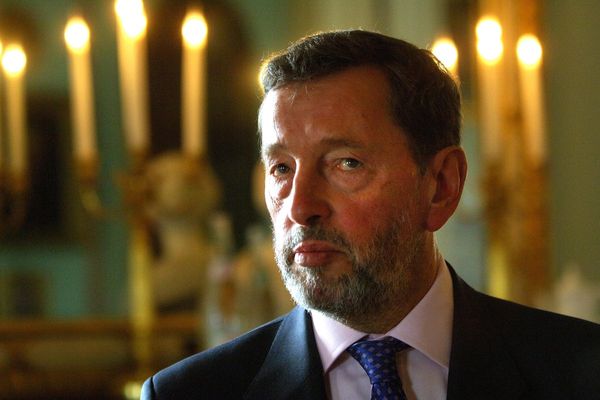
Washington (AFP) - When Donald Trump was elected president in 2016, some evangelical Christians held their noses over his louche lifestyle and manners in a belief he would be a champion on their key battlefield -- the judiciary.
Their bet paid off.Trump is no longer in power but his nominations have led America's Christian right to its holy grail -- the Supreme Court ending the nationwide right to abortion.
If there is one point of unanimity among Trump's supporters and critics both inside and outside the Republican Party, it is that reshaping the judiciary will be one of his most lasting legacies.
Trump over his four-year term was able to nominate three justices, or one-third, of the Supreme Court -- all of whom sided with the majority Friday in striking down the 1973 Roe v. Wade decision.
Trump -- who in 1999, as a celebrity realtor flirting with politics, called himself "very pro-choice" -- said in a statement that the historic ruling was "only made possible because I delivered everything as promised."
Asked in a Fox News interview if he deserved credit, Trump, who rarely goes to church and is seldom known for modesty, said, "God made the decision."
Mary Frances Berry, a history professor at the University of Pennsylvania, said that, with the relative youth of his appointees, Trump will likely have an enduring legacy on the courts for years to come.
"One thing we know about Trump is even though some of the promises he makes are outrageous, he usually tries to keep his promises -- unlike many politicians."
The decision comes at a key moment for Trump, who slipped in a recent poll of Republicans as he contemplates a 2024 rematch against President Joe Biden.Trump has also come under new scrutiny in congressional hearings over his attempts to stay in power after his loss which culminated in the January 6, 2021 attack on the US Capitol.
Trump's secretary of state Mike Pompeo, an evangelical who recently backed a rival candidate in a key primary, wrote on Twitter to Trump that "historians will write about you."
"Americans, born and unborn, will benefit for decades," Pompeo said.
A 'transaction'
Caleb Verbois, a political scientist at Grove City College, a conservative Christian institution in Pennsylvania, said he received a text message from a friend after the abortion decision saying, "My transaction with Trump has finally come due."
"If you're a strong political conservative, I think it's undeniable that the three most important things were his three Supreme Court nominations," Verbois said.
On his legacy, decades later "you're going to remember four years of mayhem and social media uproar and January 6 -- and then you're going to remember this."
Trump took the unprecedented step during his 2016 campaign of releasing a list of people he would nominate to the Supreme Court after initially struggling to solidify support among church-going evangelical Republicans.
"They didn't like Trump's personality, they didn't like his language, they didn't like his attitude.But they said, it's justified because of the court," Verbois said.
Senate Republican leader Mitch McConnell -- who has sparred with the former president, notably over January 6 -- worked hand in glove with the Trump White House to push through court picks, who require confirmation by the Senate.
Trump's first Supreme Court justice, Neil Gorsuch, was nominated after McConnell broke precedent by blocking then president Barack Obama from filling an empty seat.
Trump's second justice, Brett Kavanaugh, survived allegations of sexual harassment and his third, Amy Coney Barrett, was confirmed in just one month, after the death of Ruth Bader Ginsburg, an icon of the left and committed defender of abortion rights.
Galvanizing opposition?
Federal judges serve for life and Trump, by virtue of lucky timing and unity in the Republican Senate, was able to name an unusually large number of justices -- prompting calls, but no action, to reform the courts.
In four years, Trump filled 28 percent of available seats on the federal bench, almost as many as were chosen over two terms by Obama, who was only able to pick two Supreme Court justices.
House Speaker Nancy Pelosi, a Democrat, cast blame on Trump and McConnell for a decision that gives American women in 2022 "less freedom than their mothers" and, like Biden, vowed to campaign on abortion in November congressional elections.
Some Democrats rued that the abortion ruling proved that elections have consequences and that the party was too complacent in 2016, when Trump narrowly beat Hillary Clinton.
But Mark Bayer, a former chief of staff to a Democratic senator and president of Bayer Strategic Consulting, said the decision could galvanize opposition.
"Donald Trump may expect a political payoff, but this disastrous ruling also will energize voters across the political spectrum who support women's rights," Bayer said.







